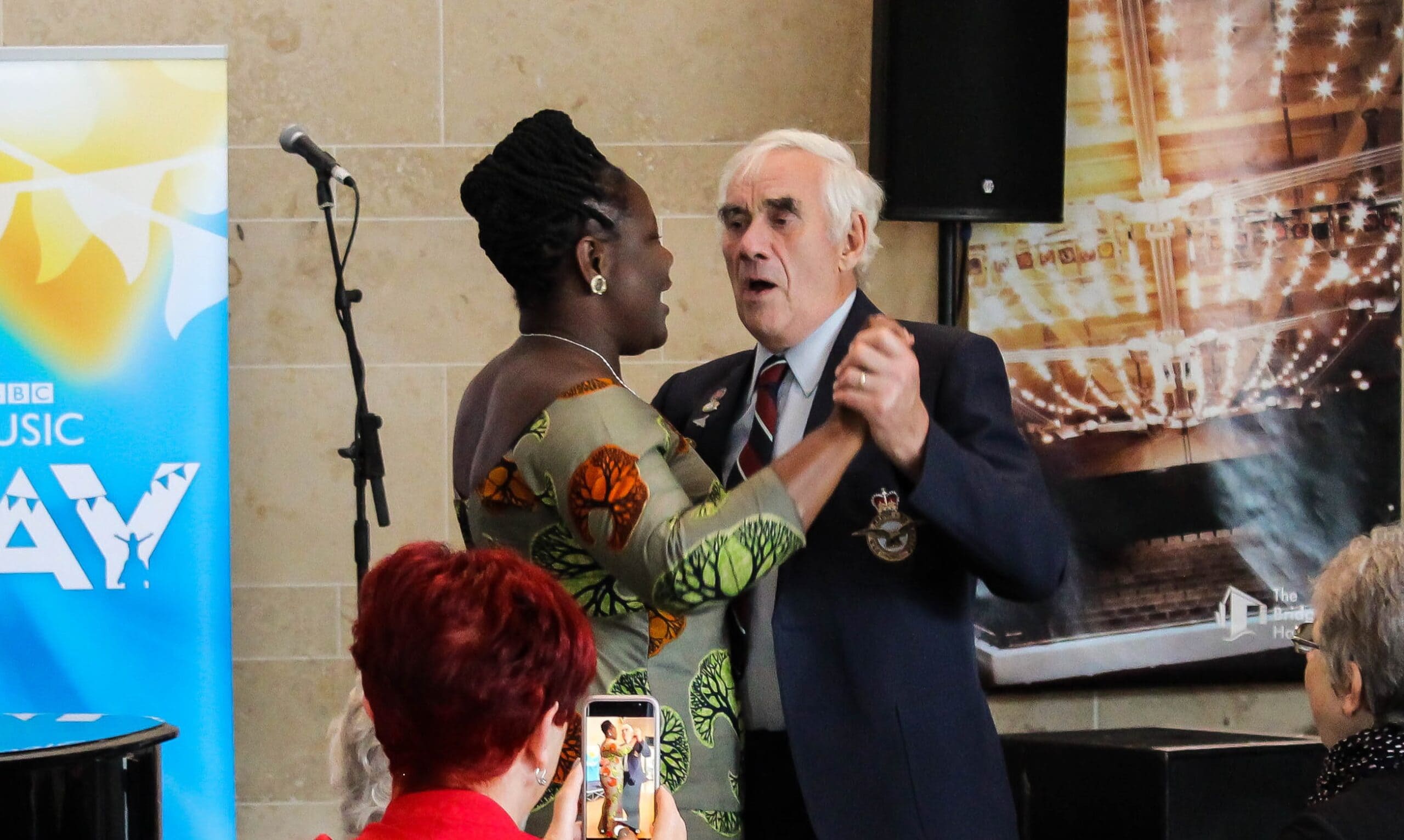Dementia Action Week: Study shows benefits of regular live music
New research, carried out by the Salford Institute for Dementia at the University of Salford in our specially created music café, has found that people living with dementia who regularly experience live music have reduced isolation, increased wellbeing and improved peer support.
Music in Hospitals & Care musicians provided 12 monthly live music performances for a year at the music café. Interviews and focus groups with people living with dementia and their carers were conducted to evaluate the impact the music had on peoples’ wellbeing.
Professor Anthea Innes from the University of Salford said: “Music brings people together and enables connections as it knocks down barriers. Our research shows that live music offers peer support, a reduction in feelings of isolation and increases wellbeing. We also found that people with dementia benefit not just while they’re at the session, but that the music has long-lasting positive effects.”
Liz and Mike Brookes from Rochdale attend the music café. RAF military veteran Mike was diagnosed with vascular dementia 10 years ago.
Liz said: “Life can be isolating and it’s difficult to find things that we can enjoy together. The music café not only brings us together but there is complete acceptance. The music brings a beaming smile to Mike’s face and has a big impact on us both. We talk about it for days afterwards and it keeps his brain active. One musician, Margaret, he really hit it off with and got up and danced. For me as a carer, I can forget everything and live in the moment, it’s like a mini holiday.”
Barbara Osborne, Chief Executive of Music in Hospitals & Care, said: “Music has a vital role to play in improving the quality of life for people living with dementia and their families. We’ve seen people who can’t communicate hear our musicians play and suddenly remember all the words to a song. Live music helps to unlock memories and transforms relationships between people with dementia, families and carers. When people enjoy live music together, they feel more connected, and it makes a huge difference.”
This research adds to the growing evidence that live music supports the wellbeing of people living with dementia and their families and helps them to interact with others in a similar situation. The sessions have had to stop during the pandemic and further funding is being sought to restart them to give people with dementia the ongoing benefits of live music.
There are around 850,000 people with dementia in the UK. This is projected to rise to 1.6 million by 20401. The release of the study coincides with Dementia Action Week, a national event to improve the lives of people affected by dementia.
The full study, Exploring the impact of live music performances on the wellbeing of community dwelling people with dementia and their care partners, can be viewed in the Wellbeing, Space and Society journal here.
Make a donation
Please give today to help improve the health and wellbeing of children and adults through the healing power of live music.

